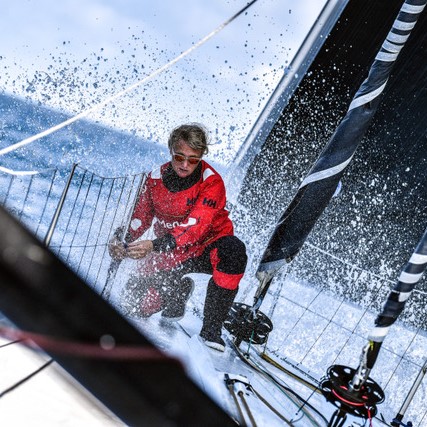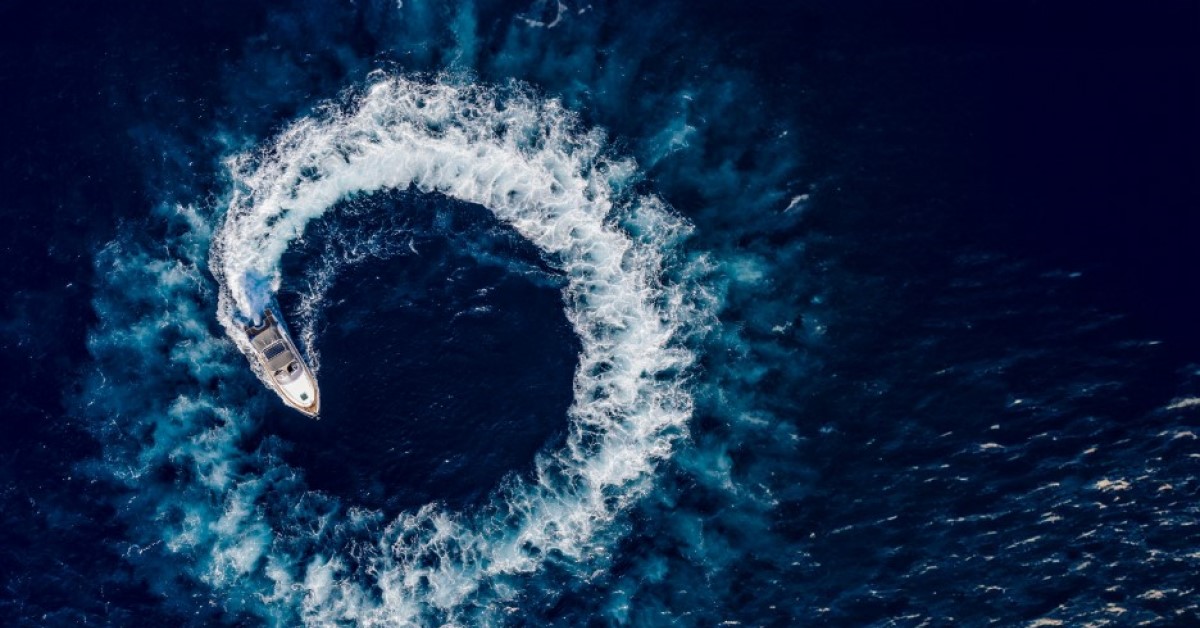Promotion
Sailing, superyachts and technology: Now digital by default
We are in an age where people are willing to pay more for experiences. Whether that’s chartering a superyacht for the first time, committing to ownership of a megayacht for exploration or challenging themselves in the extreme environment of team or solo racing,” says Simon Pavitt, chief operating officer at the London Technology Club (LTC).
“The ultra-wealthy, who, despite having everything, are still looking for rarity, ie. being part of something unique and enthralling – such as being the first to explore and discover new unseen remote places.
“For example, we have moved from what a superyacht does (which was primarily luxury), to what the owner and guests can experience from it – be it a calming, flowing space for one’s deepest thinking to adventures in the furthest corners of the world and even contributing to cutting-edge science and maritime research.”
These are the some of the findings published in a new report looking at how future technology will affect the world of sailing and super yachts – the 16th in the “Future technology” series of white papers from LTC, the Mayfair-based community of family offices, entrepreneurs and private technology investors.
“As with everything in life there is compromise – for example, boat design is a tightrope between safety vs comfort, creativity, and innovation,” says Simon.
“Owners are often torn between practical and audacious ideas, showing off for prestige vs the desire to be invisible. Technology is helping reduce these trade-offs as well as ensuring the safeguarding of life, property – and now the environment.”
LTC is hosting a series of events around the published report with award-winning designers, renowned naval architects, brokers, executives from the global sailing league SailGP and leading yachtsmen and women in Mayfair, Monaco, St Tropez and Dubai.
In discussion with iconic yacht designer Andrew Winch of London-based Winch Design, Simon says: “There used to be two types – those who like sailing and those who like motor boats. The former, at the helm, action, feeling the movement, seeing the boat as a live and active operation, being part of a sailing community be it a crew or regatta. The latter, motorboat owners preferring leisure, the status symbol, privacy, fun toys for play.
“Now there is a third type – the challenger. It is no longer enough to integrate over the top furnishings and try to include the biggest pool. Seafarers are pushing for the integration of the latest technologies to challenge and reimagine the purpose of boats, at minimum for their travels to be kinder to the environment.
“The challenger is pushing for the use of bio-sourced, recyclable materials and the method of propulsion – whether biofuel, hydrogen, hybrid or fully electric… The challenger is pushing design – be it asymmetry, split and merge and refits over new yachts.
Flexibility in performance for the new wave of owner is key. “Such thinking is also infiltrating the likes of the SailGP racing league, integrating purpose into everything they do in the sport. Competitive sailing is drawing from and contributing to other types of high-performance sport, particularly merging the expertise of F1, cycling and sailing.
“Billionaires and large applied engineering corporates alike are driven by competition, fuelling advances in carbon fibre for strength with weight reduction, data analytics for real-time AI decision-making, human-power generation and sailmaking technology.”
Pip Hare, British yachtswoman, world record holder, skipper in the 2020 and 2024 Vendée Globe round-the-world yacht races, says: “Our notion of sailing as a sport has changed dramatically over the last 15 years with the advent of the technology around foiling boats, which fly above the water.
“Though this may seem a far cry from more traditional boating forms, as with most high-performance engineering, the technological advances that drive performance at the elite end of the sport very quickly trickle down to more mainstream applications.”
Jeremy Waitt, multiple offshore race winner, CEO and founder of Bramble Marine, adds: “Navigating a boat (for either pleasure or racing) is about problem solving and risk management. Just like business. I believe that’s why we see so many high performers and individuals bring a challenger mindset and the latest technologies to this space.”

To conclude, Simon says: “Technology is moving the industry to ‘digital by default’ which will only accelerate with vessel connectivity reaching new levels of speed, coverage and security-enhancing pleasure cruising, exploration and competitive sailing.
“As we demonstrate in our latest report, tech is positively woven into everything around superyachts and sailing.”
To download the free report in full please visit www.londontechnologyclub.com
About The London Technology Club
The London Technology Club, based in Mayfair, is a community of family offices, private and institutional investors, venture capital firms, technology experts and influencers. The club combines networking, education and co-investment opportunities in the tech sector under one umbrella and provides access to competitive VC funds with attractive returns.







